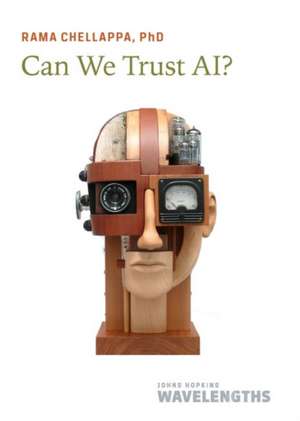Can We Trust AI?: Johns Hopkins Wavelengths
Autor Rama Chellappa, Eric Niileren Limba Engleză Paperback – 9 ian 2023
Preț: 90.72 lei
Nou
17.36€ • 18.56$ • 14.47£
Carte disponibilă
Livrare economică 27 martie-10 aprilie
Specificații
ISBN-10: 1421445301
Pagini: 224
Dimensiuni: 127 x 177 x 21 mm
Greutate: 0.23 kg
Editura: Johns Hopkins University Press
Seria Johns Hopkins Wavelengths
Notă biografică
Rama Chellappa, PhD, is a pioneering researcher and inventor in the fields of artificial intelligence, computer vision, and machine learning. A Bloomberg Distinguished Professor in electrical, computer, and biomedical engineering, he is also a member of the Johns Hopkins Center for Imaging Science, the Center for Language and Speech Processing, the Institute for Assured Autonomy, and the Mathematical Institute for Data Science. A Fellow of the Association for the Advancement of Artificial Intelligence, the Institute for Electrical and Electronics Engineers, and the National Academy of Inventors, Dr. Chellappa holds eight patents. He is a member of the National Academy of Engineering and the recipient of the 2020 IEEE Jack S. Kilby Medal for Signal Processing. His work has been featured by the Associated Press, the BBC, and Popular Science (Discovery Channel). Eric Niiler (CHEVY CHASE, MD) is a science writer for The Wall Street Journal and an adjunct faculty member in the Johns Hopkins University Graduate Program in Science Writing. His work has appeared in WIRED, National Geographic, The Washington Post, and on NPR and BBC/PRI's The World.






